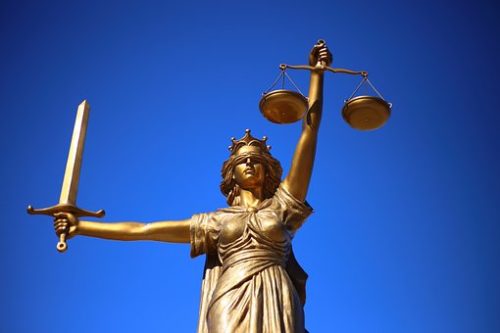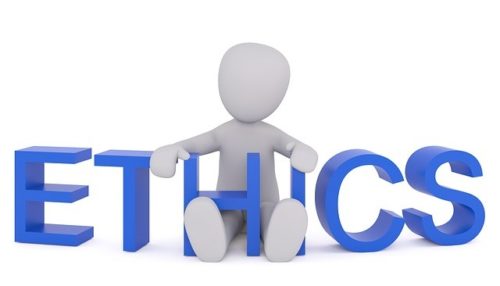- Introduction to Office 365 Groups and its benefits for lawyers
- Creating an Office 365 Group for a matter
- Using the shared inbox for communication
- Adding events and deadlines to the shared calendar
- Collecting resources and research in OneNote
- Uploading documents to the shared document library
- Collaborating with outside co-counsel or experts
- Using Office 365 Forms for client input
- Conclusion and summary of the benefits of Office 365 Groups for lawyers
-
Microsoft Office 365 For Attorneys The Office 365 Groups feature can be beneficial to lawyers as it provides a centralized location for collaboration and communication among team members working on a matter. By creating a Group, attorneys, paralegals, assistants, and support staff can use a shared inbox to discuss the matter, add events and deadlines to a shared calendar, collect resources and research in OneNote, and upload documents to a shared document library for collaboration. This can improve efficiency and productivity by allowing team members to access all necessary information from wherever they are, on any device with internet access. Additionally, outside co-counsel or experts can be added to the Group as well, making it easier to collaborate with external parties. Finally, the Office 365 Forms feature can be used to create forms and quizzes for client input, which can help attorneys better understand and meet their clients' needs. AGENDA
-
Order in the Court: Ethical Interaction With Judges Lawyers have a duty to uphold ethical standards while zealously advocating for their clients. But where is the line when it comes to challenging judges and their rulings? This program will explore the ethical rules that govern a lawyer's interaction with judges both in and out of the courtroom, using real-life examples and cases as illustrations. It will delve into the ethical considerations of not only what lawyers can say to judges in the courtroom, but also what they can say about them in the court of public opinion. This course will provide a thorough analysis of contemporary courtroom dynamics between attorneys and judges, as illustrated by case law, rules of professional conduct, as well as recent high-profile cases. It will discuss the ethical dilemmas that attorneys face in attempting to gain the best advantages for clients, while adhering to the boundaries of applicable ethical and legal standards. Agenda
- Introduction to the importance of ethical considerations in a lawyer's interaction with judges
- Exploration of ethical rules that govern a lawyer's interaction with judges in and out of the courtroom
- Analysis of ethical considerations for what lawyers can say to judges in the courtroom and in the court of public opinion
- Examination of contemporary courtroom dynamics between attorneys and judges through case law, rules of professional conduct and high-profile cases
- Discussion of ethical dilemmas that attorneys face in attempting to gain the best advantages for clients within the boundaries of applicable ethical and legal standards
-
In this timely, and compelling, CLE program, attorney Michael J. Deblis Presents, “Anatomy of a Civil Tax Controversy” Join attorney Deblis as he walks you through the anatomy of a civil tax controversy from A through Z. This program will cover each step in the process, and will take a closer look at what to do during an eggshell audit. Other topics to be discussed include cases typically recommended for prosecution, attorney-client privilege in the tax realm, Kovel Agreements, IRS Appeals, and more. This program is a must for any attorney Learning Objectives In-depth overview of the anatomy of a civil tax controversy from A through Z Best practices for walking your client through an eggshell audit A Review attorney-client privilege in the tax realm Discuss the use of a Kovel Accountant and drafting an airtight Kovel Agreement A Comprehension of the IRS Appeals Process Evaluate the hazards of litigation
-
How the IRS Reconstructs Income in Tax Fraud Cases
-
Unfair, Deceptive, or Abusive Acts or Practices (UDAAP)
-
North Dakota 15 Credit Bundle with 3 Ethics Bundle Courses Include: Bundle Courses: Criminal Mitigation: Pre-Pleas & Pre-Sentencing Strategies (1 General Credit) Borderline Personality Disorder: Pre-Plea & Pre-Sentencing Mitigation Strategies (1.25 General Credits) Is That a Worker or an Employee? Questions & Answers on Worker Classification (1.25 General Credits) No One Makes It Out Unscathed: The Effects of Personal Trauma and Stress On Our Lives (1 Ethics Credit) Intermediate Topics: Title IX (1.5 General Credits) Pre-sentence Investigation (PSI) Critique: Mitigation as Counter Strategy in Child-Pornography Cases (1.25 Credits) Anti Money Laundering for Business Lawyers (1.25 General Credits) Entity Formation 101 (1.25 General Credits) The Art and Science of Hourly Billing (1 Credit) A Lawyer's Guide to Raising Capital (1.25 General Credits) Philosophy of a Business Legal Counselor (1 Credit) Ethics Compliance for Solo Practitioners (1.25 Ethics Credits) Introduction to Non-Profit Law (1.25 General Credits)
-
Attorney Licensure and the Impaired Professional
-
Staying Safe and Sound - Maintaining A Work/Life Balance in Uncertain Times We know that you are most likely being bombarded with messages about the Coronavirus, whether that be on television, social media, or in your community networks. At uncertain times like this, anxiety, stress, fear and negative thoughts can easily take control. You may be worried about being in crowds, your loved ones, your seniors, your office, your clients, your finances or how to manage whatever the future holds as we prepare to return to the “new normal” in our personal and professional lives. The question facing everyone in the legal profession is compelling and far-reaching: “Will I ever be able to maintain a work/life balance “? Recent studies have shown that there has been a dramatic increase in impairment due to alcoholism, addiction and mental health disorders among members of the legal profession. The statistics are compelling and clearly indicate that 1 out of 3 attorneys will likely have a need for substance use or mental health services at some point in their careers. Accordingly, unexpected events like those we are facing as a society will have an even greater impact on lawyers and those who work with them. Agenda:
- The prevalence rates of impairment in the legal profession due to substance use and mental health issues prior to COVID-19.
- Causes and symptoms of depression, stress and anxiety
- The impact of COVID-19 crisis on mental health issues and the role isolation plays
- Fear associated with the uncertainty surrounding the future of the legal industry
- Well- being strategies to reduce or alleviate these conditions
- Tips for maintaining a healthy and productive work/life balance
- Ethical dilemmas created by the Coronavirus crisis, including remote supervision of attorneys and staff, record and timekeeping, data security and confidentiality in the remote office setting.
- Why legal professionals are at higher risk to develop mental health and substance use disorders
- Challenges and barriers facing legal professionals from seeking help
- The free, confidential services provided by Lawyers Assistance Programs to lawyers, their family members, judges and law students
- The role that education plays in breaking the stigma and fear associated with addiction and mental illness in the legal profession
- Resources available to both lawyers and support staff with emphasis on COVID-19 issues
-
Introduction to Psychiatric Malpractice In this timely and compelling CLE program, attorney Gregory Radomisli presents, Introduction to Psychiatric Malpractice. The program begins with an introduction to psychiatric malpractice and the duty of care that is involved. Mr. Radomisli continues the program with a discussion on the types of the general cases involved. Mr. Radomisil then presents the principles of medical malpractice as applied to psychiatric care. The program concludes with an explanation of specific cases and the law involved. This program is for any attorney. Agenda:
- What is Psychiatric Malpractice
- Duty of Care
- Types of cases in general
- General Principles of Medical Malpractice as Applied to Psychiatric Care
- Specific Cases
- Voluntary and Involuntary Hospitalization


